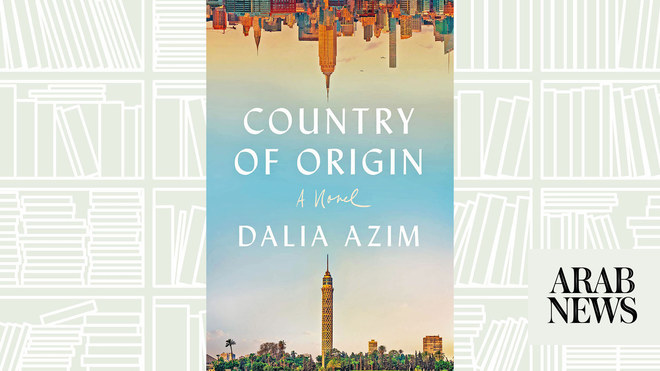
CHICAGO: As Cairo burns, protagonist Halah Ibrahim witnesses the beginning of a fight toward sovereignty for the first time in two-and-a-half centuries in Dalia Azim’s novel, “Country of Origin.”
For the latest updates, follow us on Instagram @arabnews.lifestyle
As the flames engulf British strongholds throughout the city, they simultaneously move Egypt toward independence and throw young Ibrahim’s world into disarray in which her impulsive decisions have profound consequences.
This coming-of-age narrative is about a girl and a country and their lives as independent entities.
Knowing only privilege, Ibrahim has always lived a quiet life in the middle of Cairo. But with the establishment of the Egyptian flag in 1923, only a few years before her birth, the idea of independence sweeps her up in its momentum.
As an only child with an army major as a father and an inattentive mother, Ibrahim is mostly unaware of the world but for the British school she attends and the city she watches from her roof.
As Egypt begins to transform and violence erupts, she is forced to leave school and her father looks for suitors for his 15-year-old daughter. Knowing she wants more from life, Ibrahim searches for an escape which she finds in the form of an army officer who is moving to America.
Moving through an incredible history, Azim effortlessly sets up an Egypt that is brimming with dreams of independence as much as her main character.
Her father went to war for two years and did not return until she was 10 and the revolution along with the subsequent wars with Israel have always kept him divided between family and country. Hoping for his safe return but defiantly against his plans for her to marry, Ibrahim struggles with family life. She finds in Khalil, an officer in her father’s army unit, hope of a future she can dictate herself and ends up in New York.
Told from multiple perspectives, spanning characters and generations, Azim’s narrative explores a freedom that comes from breaking trust and fighting against patriarchal traditions.
Finding a voice can have dire consequences, can split lives, and can make one feel trapped and free at the same time. Her novel touches upon the sentiments of those who have been forced to leave home and who continuously live fragmented between places as she movingly weaves through generations of the same family in which decisions and consequences can have an impact that lasts forever.












